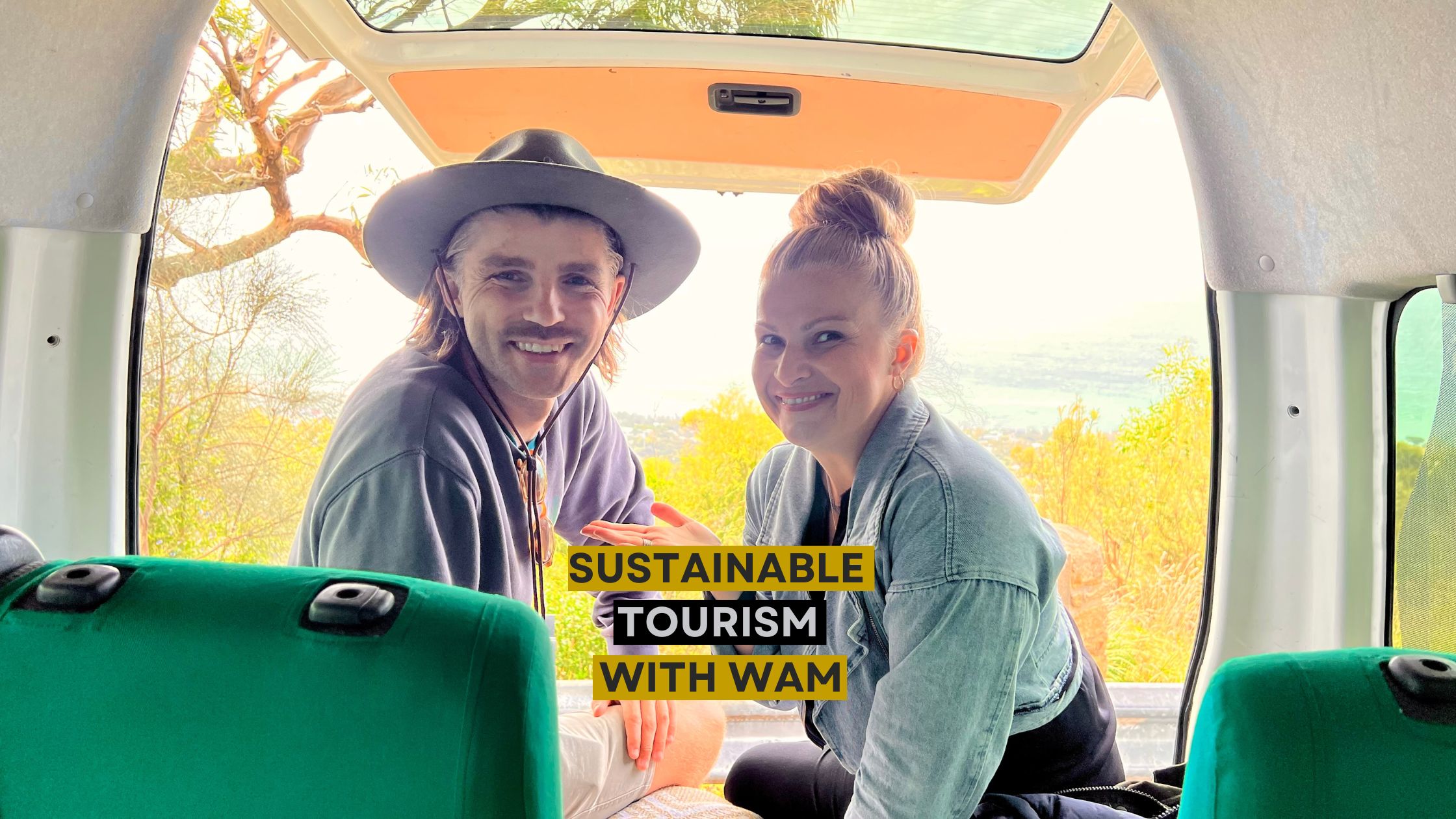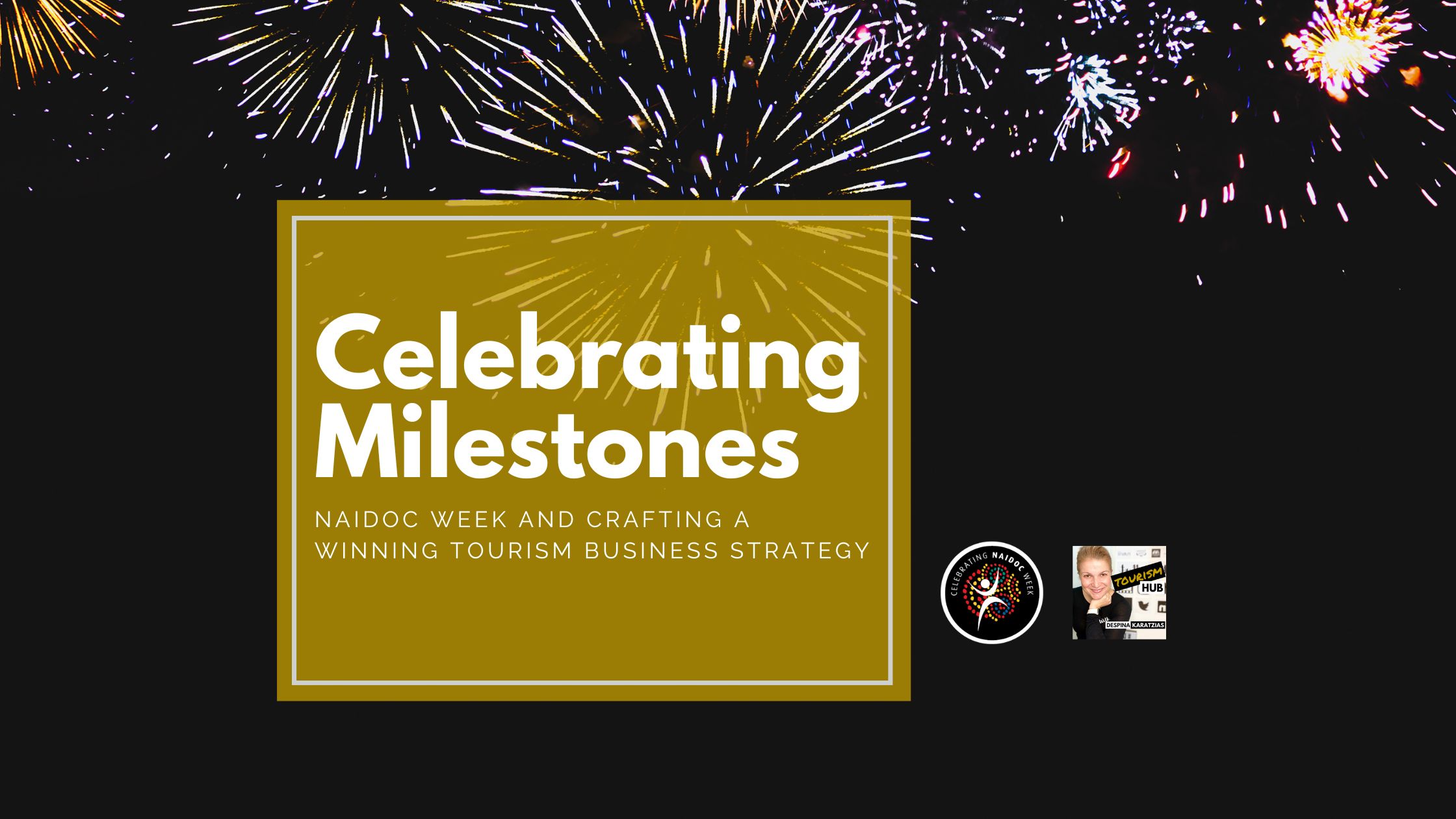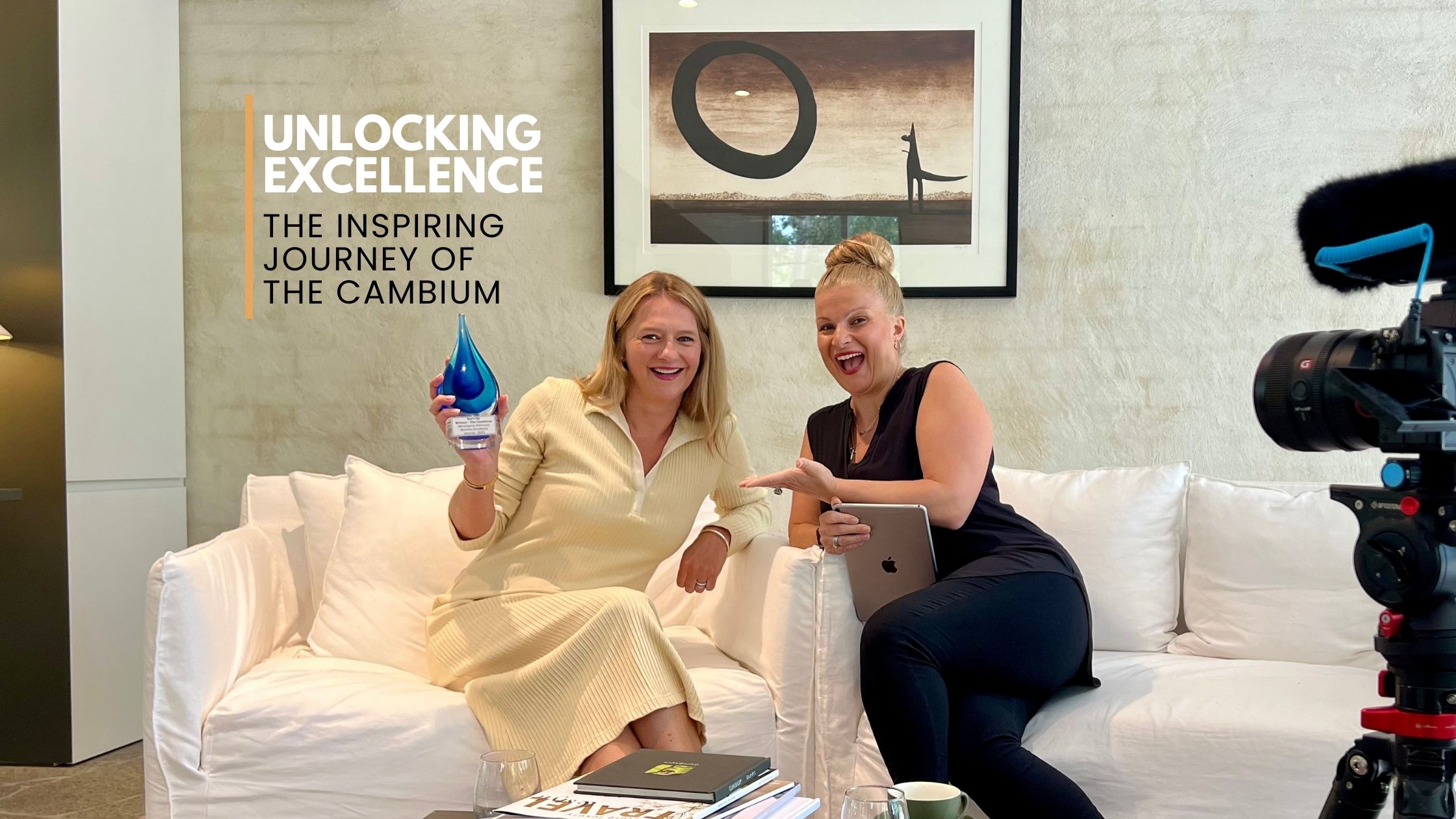Moonraker Dolphin Swims’ inspiring story is about Managing Director Torie Mackinnon, who recently appeared on the Tourism Hub Podcast – Exploring Family Tourism Business Success with Torrie Mackinnon of Moonraker Dolphin Swims and got me thinking about the benefits of family-run businesses in Australia.
Family-run businesses hold a unique charm and resilience that often set them apart from their corporate counterparts, especially when they are tourism-inspired family businesses. In Australia, these businesses play a crucial role in the economy, fostering a sense of community and continuity that can span generations. One inspiring example is Tori’s story with Moonraker Dolphin Swims, a leading tourism business in the Mornington Peninsula, a testament to family enterprises’ enduring success and adaptability.
Family-Run Businesses in Australia
Family-run businesses are an integral part of Australia’s economic landscape. These businesses range from small, local operations to large companies handed down through generations. They often bring a personal touch to their services and products, creating loyal customer bases and contributing significantly to local economies. According to a Grant Thorton Family Business Survey Report 2023, family businesses account for approximately 70% of all businesses in Australia, highlighting their significant presence and impact on the economy (Grant Thorton Australia, 2023).
Defining Family Businesses
Family businesses are defined as businesses where at least 50% ownership is held by a single family, exerting influence over the decision-making processes (Lee et al., 2017; Mukarram et al., 2018). These businesses often involve multiple generations, with family members participating directly or indirectly in management roles (König et al., 2013). The unique dynamics of family businesses stem from the intertwining of familial and business interests, leading to distinct challenges and opportunities.
Succession in Family Businesses
Succession Planning
Succession planning in family businesses is a critical process that ensures the continuity and sustainability of the enterprise across generations. Effective succession planning involves identifying and preparing potential successors, often family members, to take over leadership roles (Le Breton-Miller et al., 2004). However, many family businesses need help with succession, leading to high failure rates beyond the second generation (Poza, 2014).
Challenges
The succession process is fraught with challenges, including internal family conflicts, differing visions for the future, and the incumbent leader’s reluctance to relinquish control (Buang et al., 2013). These challenges can significantly impact the efficiency of succession processes, affecting the long-term viability of the business (Sharma et al., 2004).
Successful Succession
Successful succession processes are characterised by clear communication, effective leadership development, and the alignment of family and business goals. Research indicates that planning and structured approaches to succession can mitigate potential conflicts and ensure a smoother transition (Devins & Jones, 2016).
Torie’s Story: The Birth of Moonraker Dolphin Swims
Moonraker Dolphin Swims, established by Torie’s parents in 1990, is a prime example of the success and challenges of running a family business. Located on the picturesque Mornington Peninsula, this marine tourism company offers unique experiences, such as swimming with dolphins and seals. Torie, an only child, grew up immersed in the business, learning every aspect from the ground up. This hands-on approach equipped her with a deep understanding of the business and instilled a strong sense of responsibility and passion for its continued success.
The Advantages of Growing Up in a Family Business
Growing up in a family business like Moonraker Dolphin Swims offers invaluable advantages. Torie had the unique opportunity to understand every facet of the business, from operations to customer service. This comprehensive knowledge base often takes years to develop. Moreover, the close-knit nature of family businesses fosters a strong work ethic and an unparalleled sense of pride and ownership.
Resilience Through Adversity
Family-run businesses often exhibit remarkable resilience, a quality that has been crucial for Moonraker Dolphin Swims. During challenging times, such as economic downturns or the recent COVID-19 pandemic, the flexibility and dedication of family members have enabled these businesses to adapt and survive. Torie’s hands-on involvement in all aspects of the business, from making strategic decisions to cleaning bathrooms, exemplifies the adaptability and commitment that drive the success of family enterprises.
Personalised Customer Experience
One of the standout benefits of family-run businesses is the ability to offer personalised customer experiences. At Moonraker Dolphin Swims, Torie ensures that every customer interaction is handled with care and attention. This personal touch is reflected in the company’s proactive approach to handling positive and negative reviews. Torie fosters a loyal customer base and enhances the business’s reputation by personally responding to customer feedback and striving to improve based on their suggestions.
Long-Term Vision and Commitment
Family-run businesses are often characterised by their long-term vision and commitment. Unlike corporations that may focus on short-term profits, family businesses prioritise sustainability and legacy. Torie’s parents started Moonraker Dolphin Swims to create a unique marine tourism experience. Torie continues to honour this vision while adapting to modern market demands, ensuring that the business remains relevant and successful.
Community Connection and Support
Family businesses like Moonraker Dolphin Swims are deeply rooted in their local communities. This connection fosters strong community support and loyalty. Torie’s active participation in local business awards and her efforts to build partnerships with other local businesses highlight the importance of community engagement. This strengthens the local economy and creates a supportive network for business growth. According to the 2023 survey, 80% of family businesses actively participate in community initiatives, highlighting their commitment to their local areas (Grant Thorton Australia, 2023).
Adapting to Market Changes
The ability to adapt to changing market conditions is a hallmark of successful family businesses. Torie has witnessed significant changes in the tourism industry, particularly after the COVID-19 pandemic. Traditional marketing and customer engagement methods have evolved, requiring businesses to be more innovative and flexible. By embracing these changes and leveraging new opportunities, Torie ensures that Moonraker Dolphin Swims continues to thrive. The survey indicates that 60% of family businesses have successfully pivoted their operations in response to market changes in the past three years (Grant Thorton Australia, 2023).
Sustaining Passion and Enthusiasm
Sustaining passion and enthusiasm over decades is another challenge that family-run businesses successfully navigate. Torie’s enduring passion for Moonraker Dolphin Swims, akin to the excitement of a new venture, fuels the business’s growth and innovation. Her hands-on involvement, whether managing operations or engaging with customers, keeps her connected to the core values and mission of the business.
Mentorship and Knowledge Transfer
A significant advantage of family-run businesses is the seamless transfer of knowledge and skills across generations. Torie’s journey with Moonraker Dolphin Swims began in her childhood, learning from her parents’ experiences and insights. This invaluable mentorship ensures that the business benefits from accumulated wisdom while embracing new ideas and technologies. The 2023 survey highlights that 75% of family businesses prioritise mentorship and knowledge transfer to ensure continuity and growth (Grant Thorton Australia, 2023).
Risk Management and Innovation
Family businesses often excel in risk management and innovation due to their deep understanding of the business and industry. Torie’s proactive approach to handling reviews and feedback is a prime example. She mitigates risks and enhances customer satisfaction by addressing customer concerns promptly and effectively. Additionally, her openness to new ideas and continuous improvement drives innovation, keeping the business competitive. As noted in recent research, the relationship between succession and innovation in family businesses is complex and multifaceted, with well-managed succession processes fostering an environment conducive to innovation (Cesaroni et al., 2021).
Conclusion
Family-run businesses like Moonraker Dolphin Swims exemplify this small business’ unique benefits and strengths. Torie’s story is a testament to the resilience, adaptability, and passion that drive family businesses to succeed and thrive. Their continued success is vital in Australia, where family-run businesses form the backbone of many local economies. Through personalised customer experiences, strong community connections, and a long-term vision, family businesses contribute to economic growth and enrich their communities’ social fabric.
Curious to hear more? Check out our podcast episode with Torie Mackinnon of Moonraker Dolphin Swims.
Frequently Asked Questions
What are the main benefits of family-run businesses?
Family-run businesses offer personalised customer experiences, strong community connections, and a long-term vision. They are characterised by resilience, adaptability, and a deep sense of commitment.
How does growing up in a family business benefit the next generation?
Growing up in a family business provides invaluable hands-on experience, fostering a strong work ethic and a deep understanding of the business. It also instils a sense of responsibility and pride.
How do family-run businesses handle challenges and adversity?
Family-run businesses often exhibit remarkable resilience, with family members stepping in to handle various aspects of the business. Their flexibility and dedication enable them to adapt and survive challenging times.
What role does community support play in the success of family businesses?
Community support is crucial for family businesses. Strong community connections foster loyalty and support, which are vital for the growth and sustainability of these businesses.
How do family-run businesses adapt to market changes?
Family-run businesses adapt to market changes through innovation and flexibility. They embrace new opportunities, leverage modern technologies, and continuously improve their products and services.
What is the importance of mentorship in family-run businesses?
Mentorship ensures the seamless transfer of knowledge and skills across generations. It combines accumulated wisdom with new ideas, driving the business’s growth and innovation.
References
Buang, N. A., Ganefri, G., & Sidek, S. (2013). Family business succession of SMEs and post-transition business performance. Asian Social Science, 9(12), 79-92.
Cesaroni, F. M., Sentuti, A., & Cubico, S. (2021). Family business succession and innovation: A systematic literature review. European Journal of Family Business, 11(2), 52-66.
Devins, D., & Jones, B. (2016). Strategy for succession in family-owned small businesses as a wicked problem: Insights from a UK study. International Small Business Journal, 34(8), 997-1015.
Grant Thorton. (2023). Grant Thorton Family Business Survey Report 2023. Grant Thorton Australia.
König, A., Kammerlander, N., & Enders, A. (2013). The family innovator’s dilemma: How family influence affects the adoption of discontinuous technologies by incumbent firms. Academy of Management Review, 38(3), 418-441.
Le Breton-Miller, I., Miller, D., & Steier, L. P. (2004). Toward an integrative model of effective FOB succession. Entrepreneurship Theory and Practice, 28(4), 305-328.
Lee, K. S., Lim, G. H., & Lim, W. S. (2017). Family business succession: Appropriation risk and choice of successor. Academy of Management Review, 28(4), 657-666.
Mukarram, S. S., Wright, M., & Clarysse, B. (2018). How founder characteristics imprint ventures’ internationalisation: A comparative case study of Scottish spin-offs. Journal of Business Research, 85, 13-23.
Poza, E. J. (2014). Family business. Cengage Learning.
Sharma, P., Chrisman, J. J., Pablo, A. L., & Chua, J. H. (2004). Determinants of initial satisfaction with the succession process in family firms: A conceptual model. Entrepreneurship Theory and Practice, 25(3), 67-80.









